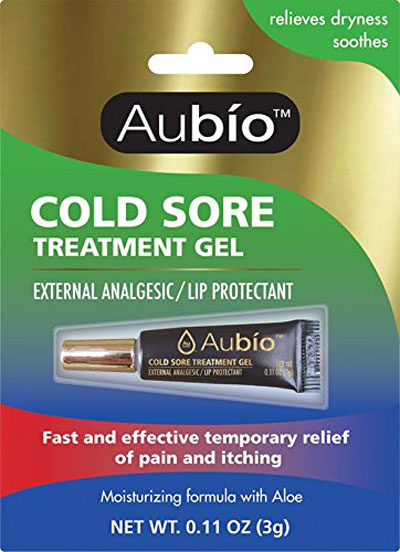Cold Sore Ad Claims Review Poses Test For OTC Monograph Indications
This article was originally published in The Pink Sheet & The Rose Sheet
Executive Summary
Council of Better Business Bureaus forwards review of ad claims for Aubio Life Sciences' monograph cold sore treatment to US FDA and FTC, after firm rejected advice to discontinue certain claims. Initial challenge was brought by GSK, which markets an NDA cold sore product.
An industry self-regulation organization for the second time in 2018 found that ad claims are not supported for OTC monograph cold sore products that compete with GlaxoSmithKline PLC's, Abreva, the only OTC cold sore treatment available through FDA pre-market approval.
The Council of Better Business Bureaus’ National Advertising Division reviewed ad claims for Aubio Life Sciences LLC’s Aubio Cold Sore treatment after GSK's GlaxoSmithKline Consumer Healthcare LP challenged the advertising. NAD announced on Aug. 23 that it forwarded its review of Aubio's ad claims to the US Federal Trade Commission and to FDA after the firm rejected its recommendation to discontinue an ad claim of providing “temporary relief of pain and itching” at the “tingling” stage of cold sore formation.
Aubio contends claims regarding its product benefit at the onset of a cold sore are “authorized” by FDA's OTC external analgesics tentative final monograph.

When companies don't comply with its advertising recommendations, which are non-binding, NAD forwards its review to FTC. FTC says it prioritizes investigating ad claims identified by CBBB's divisions, and also expects that firms linked to those ads will reconsider and cooperate in industry self-regulation rather than potentially face more costly litigation brought on by a commission complaint. The agency also might not agree with NAD's recommendations. (Also see "Prestige Brands Stands By Nix Lice 'Kill' Claims Despite NAD Objection" - Pink Sheet, 10 Apr, 2017.)
NAD's standards track with FTC regulations for consumer product advertising, which means it considers whether ads for OTC drugs are false and misleading, not whether the information complies with FDA's requirements for labeling. With that approach, NAD most often refers reviews of potentially misleading claims for consumer health products made by uncooperative firms to FTC.
However, when consumer health product firms have received FDA warning letters before NAD reviews of their advertising or actions appear to violate FDA regulations, including making claims outside OTC monograph indications, NAD may forward its review to both agencies when a firm doesn't agree with its findings. Earlier in 2018, NAD submitted its review of Kramer Laboratories Inc.’s Fungi-Nail athlete’s foot treatment to both agencies because it expected the firm’s brand name and other claims for the product could be of concern to FDA. (Also see "Athlete's Foot Firm Kicks Back On NAD Finding That Brand Is A Fungal Claim" - Pink Sheet, 15 Jan, 2018.)
Carmex, Mucinex Reviews
In it previous review of a cold sore product claims challenged by GSK, NAD criticized Carma Laboratories Inc. for going outside indications allowed under FDA’s OTC analgesic TFM and OTC skin protectant final monograph. In a May report, NAD said the company’s claims for its treatment, including “helps promote healing” did not mirror the monograph indications and should be discontinued. (Also see "Carmex Cold Sore Treatment Claims Exceed Monograph Limit In NAD Review" - HBW Insight, 14 May, 2018.)
In a review published in early 2018, NAD determined that Reckitt Benckiser Group PLC’s claims for its Mucinex Fast-Max Cold, Flu & Sore Throat implied the product treats cold and flu symptoms outside its indications, particularly nasal maladies. (Also see "Mucinex Fast-Max Advertising Claim Exceeds Indications In NAD Review" - Pink Sheet, 14 Feb, 2018.))
Still, attention to a review NAD refers likely isn't a high priority at FDA. For instance, Aubio's claim of its product's rapid onset of treatment might not rise to the level of a public health problem that merits a commitment of FDA resources to resolve.
At FTC, meanwhile, consumer health ads are a priority sector for its Bureau of Consumer Protection. NAD's forwarded reviews to both agencies get a separate decision by each.
“We will often consult when we receive referrals or complaints that are sent to both agencies, but in the end, we will make independent determinations,” said Richard Cleland, assistant director in the bureau's advertising practices office, in an email.
NDA Vs. Monograph
GSK Consumer Healthcare challenged numerous claims in TV ads, digital ads and product packaging for Aubio's product, including:
-
“Why wait 2.5 days with Abreva when you have Aubio?”
-
“Cold sore relief in hours. That’s fast. Aubio fast.”
-
“Cut the healing time in half.”
-
“Aubio provides relief in hours, not days.”
-
"The fastest cold sore relief.”
-
“Soothes and diminishes cold sores almost instantly.”
-
“From tingle to mingle in no time at all.”
Testimonials challenged by GSK included, "It is so awesome to know that I can knock out my cold sores before they even breakout into a blister.” GSK said the claims suggested the product is all-natural, has anti-viral properties and can heal cold sores quicker than Abreva – in hours not days, according to NAD's report.
The firm noted Abreva (docosanol 10%) is marketed under a new drug application and is the only OTC cold sore treatment approved by FDA to shorten cold sore healing time and duration of symptoms. Aubio contains lidocaine 0.5%, available under the OTC external analgesic drug products TFM and allantoin 0.5%, an ingredient in FDA's skin protectant final monograph.
The two monographs allow the product to use these indications: for “temporary relief of pain and itching associated with fever blisters and cold sores” and/or to “temporarily protect(s) and help(s) relieve chapped or cracked lips. Help(s) protect lips from the drying effects of wind and cold weather.”
Aubio agreed during the review to discontinue most of the challenged claims but said it intended to continue to reference “tingling” or “tingle” in its advertising. It maintained that use of the claims in conjunction with the treatment’s use at the first sign of a cold sore for the purpose of providing “temporary relief of pain and itching associated with fever blisters and cold sore” was “expressly” provided in the OTC monograph for OTC analgesic/skin protectants.
The Wixom, Mich.-based firm argued that the external analgesic TFM indication for “pain and itching” can be advertised to convey that a product can be applied “at the first sign of a cold sore, which is the uncomfortable ‘itching, burning or tingling’ associated with the coming of a cold sore.” It said the product’s use to address pain and itching did not diminish GSK’s claims that Abreva can shorten the duration of a cold sore.
Core Question: Timing Of 'Tingling'
GSK presented testimony from an expert stating the initial symptoms associated with a cold sore outbreak – tingling – is followed several days later by the appearance of a blister. Unlike anti-viral drugs such as Abreva, external analgesics and skin protectants are typically applied later in the cold sore cycle to relieve symptoms of pain and discomfort associated with the cold sore, “particularly post-rupture, through the end of the healing phase,” the UK pharma said. The most those products can do is “claim to provide limited and short-lived symptomatic relief” and suggested the products cannot help in the stage prior to the appearance of the blister since they are not anti-viral medicines.
NAD attorneys said because Aubio did not provide consumer perception data on the net impression created by its ads, they considered a short video on Aubio’s website as evidence.
The film featured somber adults and one man stating “it’s painful” in regards to his cold sore. A voiceover states, “Aubio relieves pain and itching associated with cold sores,” immediately followed by “apply Aubio at the first sign of a cold sore.” The disclaimer, “provide temporary relief” appears at the bottom of the screen during both claims.
The attorneys determined that Aubio’s claim “apply at the first sign of a cold sore” conveyed consumers that users will experience a benefit from application of the product at that time. “Aubio instructs consumers to apply the product at the first sign of a cold sore directly after stating that the product provides relief from pain and itching,” they said. Noting that instructions "with that level of specificity are not typically featured in drug advertising," Aubio's "conveys the message that the product will provide a specific benefit at that time,” the attorneys wrote in the report.
They are critical that Aubio did not provide independent competent and reliable evidence supporting the efficacy of its product at the early stages of a cold sore but relied on the product's formulation under specifications in the external analgesics TFM and its “interpretation of the monographed indications.”
Information on FDA's development of indications doesn't explain whether the agency "intended the indication to encompass pain or itching preceding the development of a cold sore or fever blister, or only once the cold sore has erupted," according to the NAD report. The attorneys said FDA's information shows that Aubio, as an external analgesic, is in a category of products "intended to treat certain specific symptoms of the herpes virus (i.e., the cold sore or fever blister), not the virus itself.”
Similarly, they said Aubio did not provide evidence demonstrating that the FDA panel that developed the external analgesic TFM "ever considered evidence of efficacy for the covered active ingredients on pain and itching during the cold sore development process.”
From the editors of the Tan Sheet.
